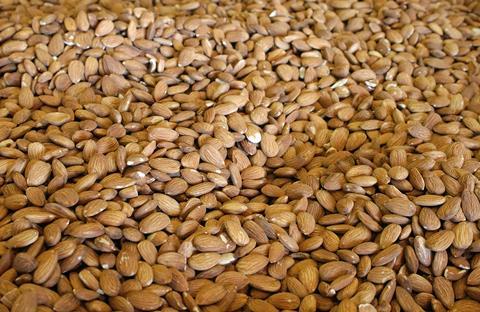Australian almond exporters eye market share gains as US suppliers face headwinds
The Trump administration’s decision to announce wide-ranging tariffs on its trade partners has potentially created opportunities for smaller suppliers in the global almond market.

The US is the world’s largest supplier of almonds, accounting for almost 80 per cent of production. However, the next suppliers in line have expressed their intention to take advantage of any disruption to trade.
Australia is the second-largest producer of almonds and Tim Jackson, chief executive of peak industry body the Almond Board of Australia, said Australian almond growers are poised to benefit from the US decision to impose punitive tariffs on China, one of the world’s largest almond markets.
Australia can leverage an existing free trade agreement with China, meanwhile, China has announced reciprocal tariffs on US imports.
“The trade agreements our federal governments have delivered have made a huge difference to grower returns. The retaliatory tariffs tend to accentuate that advantage,” Jackson said.
“Just like China, if there are advantages in certain countries as a result of retaliatory tariffs being imposed on US product, market forces will inevitably direct buyers toward supply sources where the import costs are cheaper.”
Jackson said Australia won’t replace US supply, but it can provide an alternative.
“The fact remains that the world needs Californian almonds to meet demand, given it produces almost 80 per cent of the world’s supply,” said Jackson.
“Our role in Australia, with about 10 per cent of the world’s almonds, is to provide a credible alternative source of supply and our primary goal is to target the premium end as much as possible to maximise returns to Australian growers,” Jackson said.
In a letter to US agriculture secretary Brooke Rollins and trade representative Jamieson Greer in March, the California Almond Alliance highlighted that retaliatory tariffs “have historically led to reduced grower prices, financial strain on farming operations, and long-term shifts in supply chains that favour nations with more favourable trade agreements”.
It pointed to a 2022 study conducted by UC Davis that concluded that the US almond industry suffered an export loss of nearly US$870mn, equating to 330mn pounds of shipments between 2018 and 2022 due to increased retaliatory tariffs imposed by China during President Donald Trump’s first term.
The California Almond Alliance urged the government to work with industry to manage the changes of any new tariffs introduced.
“As global demand for almonds remains strong, we urge the Trump administration to collaborate with industry stakeholders to mitigate trade disruptions and ensure that US almond growers can continue to thrive despite shifting trade policies,” it said.



